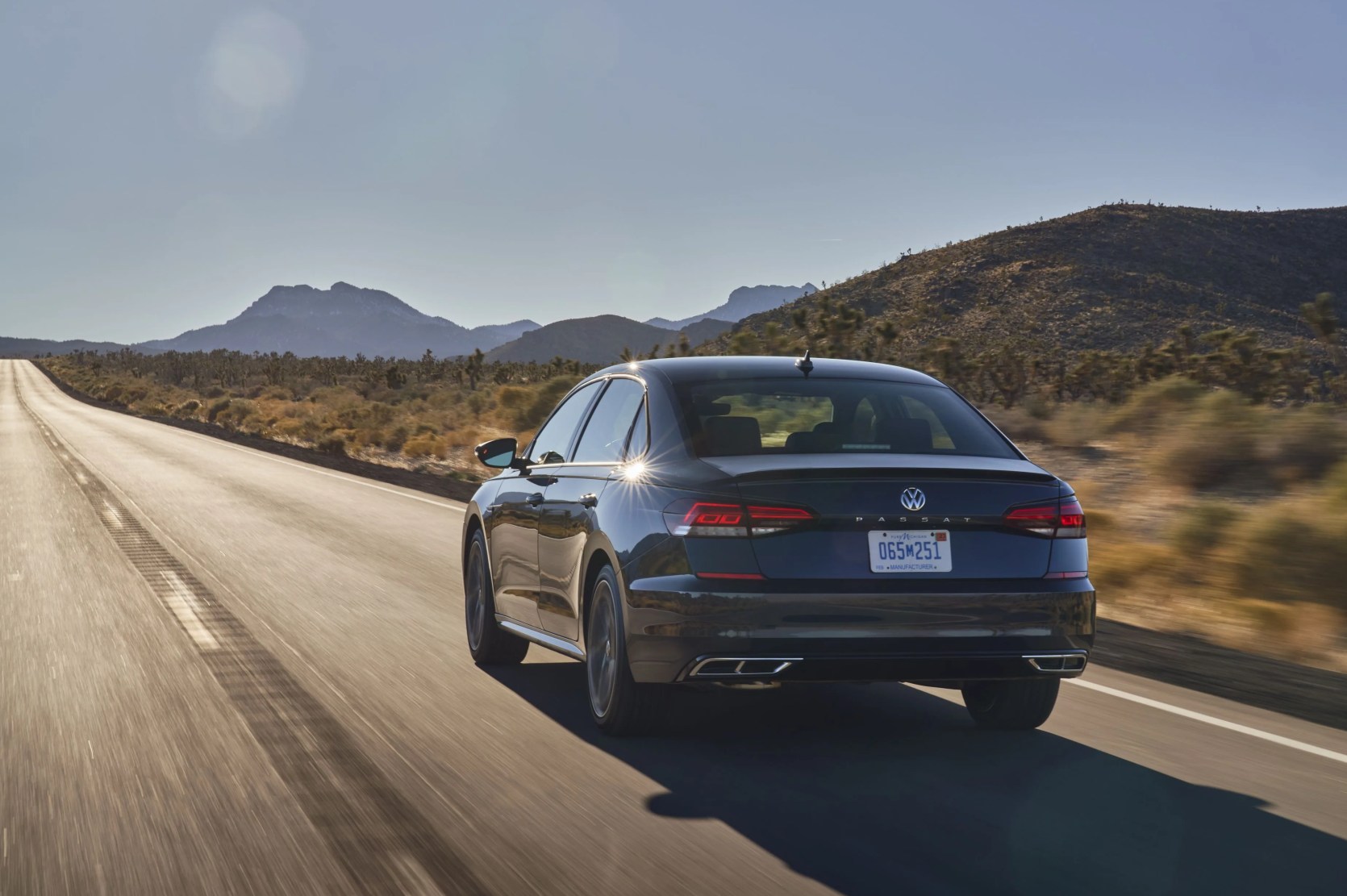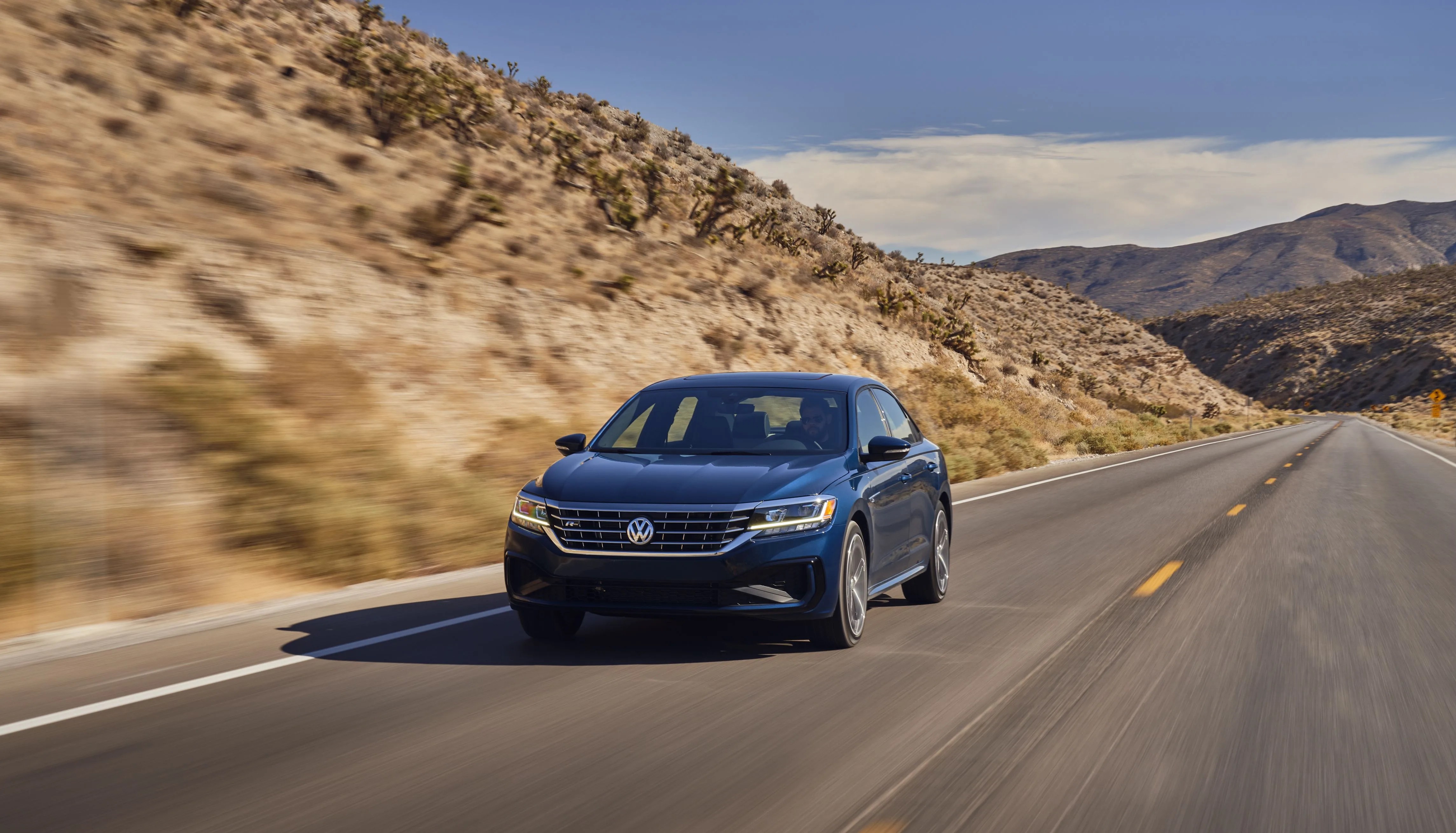Technically, the Volkswagen Passat is not dead yet; VW will end production after 2022. In spirit, though, the once venerable sedan nameplate has been dead since 2019, when VW introduced the “new” second-generation NMS version for America — a car that was the same dated sedan the carmaker had been selling for some time. Well, not exactly the same: worse. Volkswagen stripped the six-cylinder engine and manual transmission options that made previous Passats exciting.
Nixing the Passat shouldn’t bewilder anyone. No one wants a midsize sedan anymore — unless it’s a complimentary upgrade from Hertz. SUVs now make up more than 70% of Volkswagen’s American sales; so VW, naturally, is adding new crossovers like the Taos and cutting classic nameplates like the Golf and the Passat.
Still, the swift demise is an ignoble end for the Passat, which has been and continues to be a great value sedan. Here are five reasons not to sleep on the Volkswagen Passat.
The Passat is still a handsome sedan
 VW
VWI drive fancy cars almost every week; my friends and relatives are accustomed to it. But the mainstream Passat elicited unsolicited comments about how expensive it looked inside and out. The Passat still fulfills its mission: doing a passable impression of the sophisticated, business-like Audi A6 for about half the price. The interior material quality feels a cut above entry-level VWs. The Passat isn’t super-flashy or avant-garde, but there’s no need for it to draw attention to itself.





